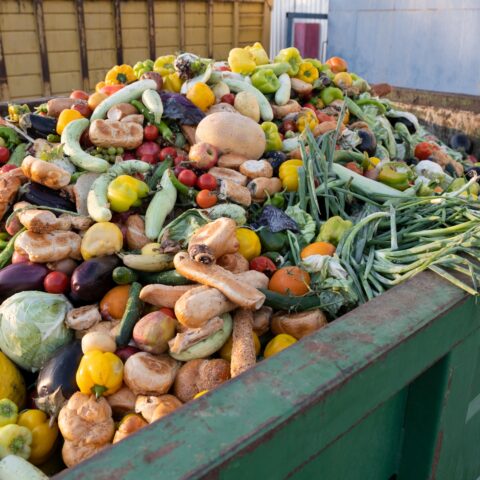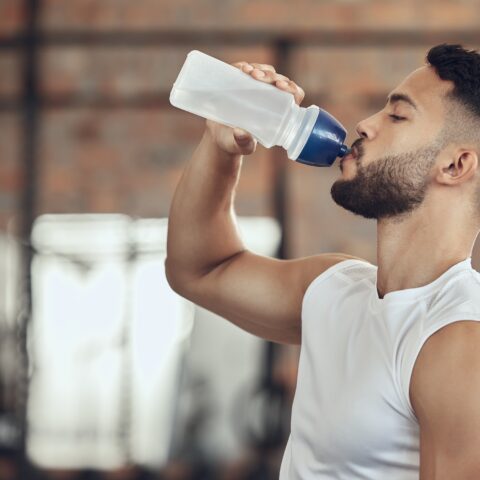Foods That Increase Libido

Sometimes it’s the stress or fatigue that comes with balancing work and life demands, or sometimes it’s simply falling into the same old routine with your partner, but there may come a time when you feel your sex drive waning. There’s a clear connection between diet and sex drive. Let’s take a look at foods that increase libido.
Foods that are aphrodisiacs have long been touted as cures to stoke the fires of passion. But because sexual desire is so complex, there may not always be a straightforward solution—for instance, erectile dysfunction (ED) could be a psychological issue or a precursor to cardiovascular disease. [1] The treatment for it—and various other sexual health challenges—greatly depends on the underlying cause.
With that in mind, we at The Paleo Diet® understand that what we eat can affect our bodies in myriad ways. If you’d like to incorporate foods that may boost your libido over time, we have several suggestions below. Additionally, we’ve also highlighted certain foods that may inhibit your sex drive.
Listen to your body when trying or avoiding these foods, as you are the only one who can speak to your unique sex drive and preferences. If you’d like to plan a sensual date night menu for you and someone special, always be sure you know of any allergies or dietary preferences they may have that could stop the evening before it even gets started. And if you have long-term or serious issues with your sexual health, be sure to speak with your health care provider for support, diagnosis, and treatment options.
Now let’s look at some foods to increase libido—and see which ones might decrease it, as well.
What Is an Aphrodisiac Food?
Aphrodisiacs are substances, foods, or activities believed to increase sexual desire, arousal, or pleasure. [2] The word “aphrodisiac” derives from Aphrodite, the Greek goddess of love. Throughout history, many cultures have recommended certain herbs or foods to increase libido or sexual performance.
But can foods really supercharge your sex drive? While research is limited around specific foods consistently promoting arousal, a healthy diet that keeps inflammation low, supports cardiovascular health, and facilitates balanced hormone production can keep the fires stoked over time.
For those more concerned with adding some heat to an upcoming date night, you may be wondering, could one meal make a difference? Anecdotal reports say yes, so feel free to experiment with some of the foods below and see what works for you.
Foods to Increase Libido
The aphrodisiac properties of any given food are closely tied to the nutrients they supply. Certain vitamins, minerals, amino acids, and other compounds are needed for a healthy sex drive. Examples include B vitamins, zinc, L-arginine, and coenzyme Q10 (CoQ10).
Below are some foods that may increase libido, based on their nutrient value, scientific studies, and anecdotal reports.
Grass-fed beef is one of the richest sources of zinc, which is important for testosterone, estrogen, and progesterone production. [3] Zinc is especially known for supporting healthy testosterone levels in men. [4]
However, it’s important to note that the amount of zinc varies by the cut. For example, a ribeye steak has 14.2mg of zinc, while a 6-ounce ground beef patty has 11mg. [5] For a healthy serving of beef, roast flank steak with kale and sweet potato.
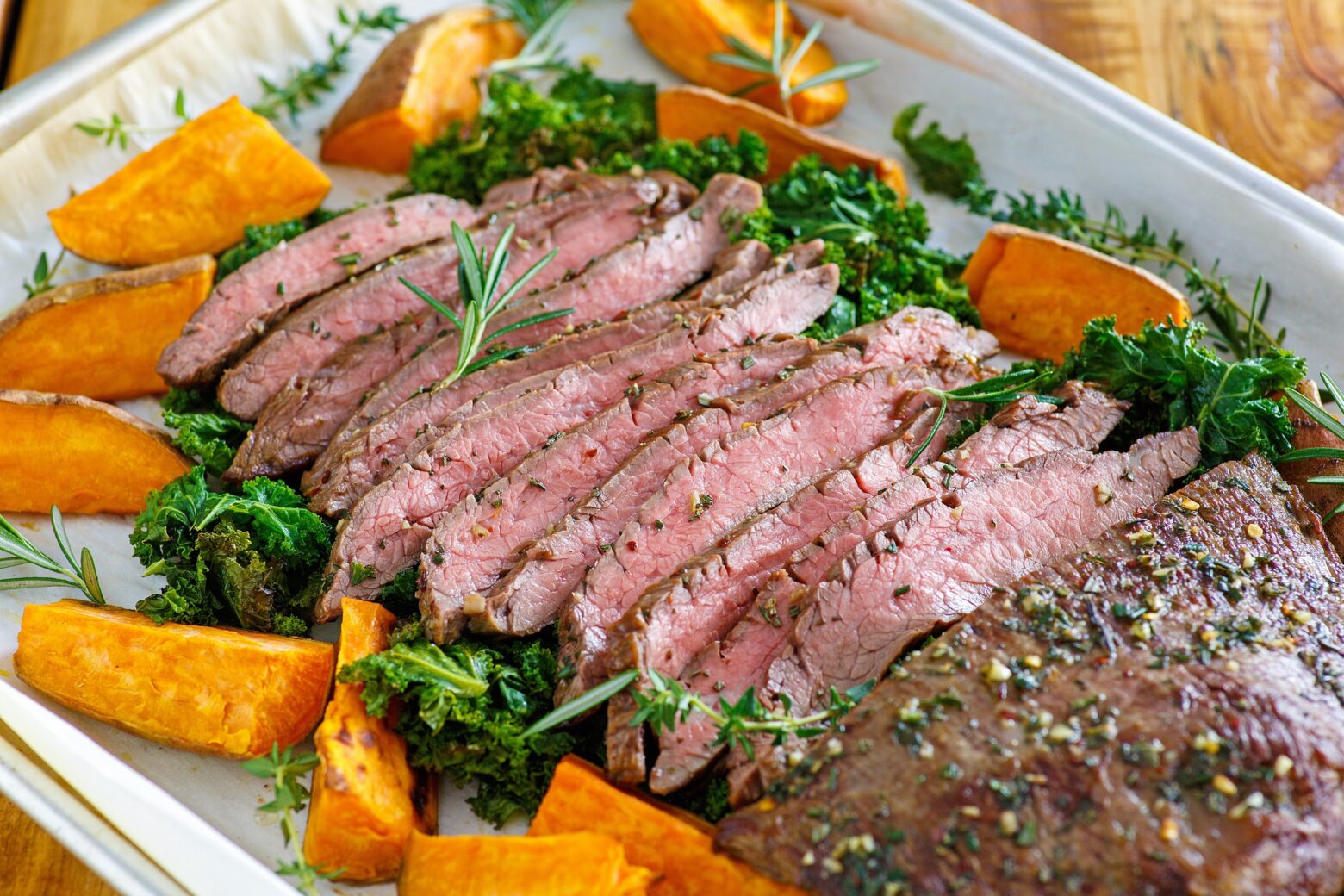
Organ meats are a step up from eating grass-fed beef. The concept of “like supports like” suggests eating certain organs may support healthy functioning in the same. For instance, eating heart muscle provides the all-important CoQ10 to protect nitric oxide and support blood flow. [6]
Could Rocky Mountain Oysters make a difference in sexual performance? Look for a baked or sautéed version and see for yourself!
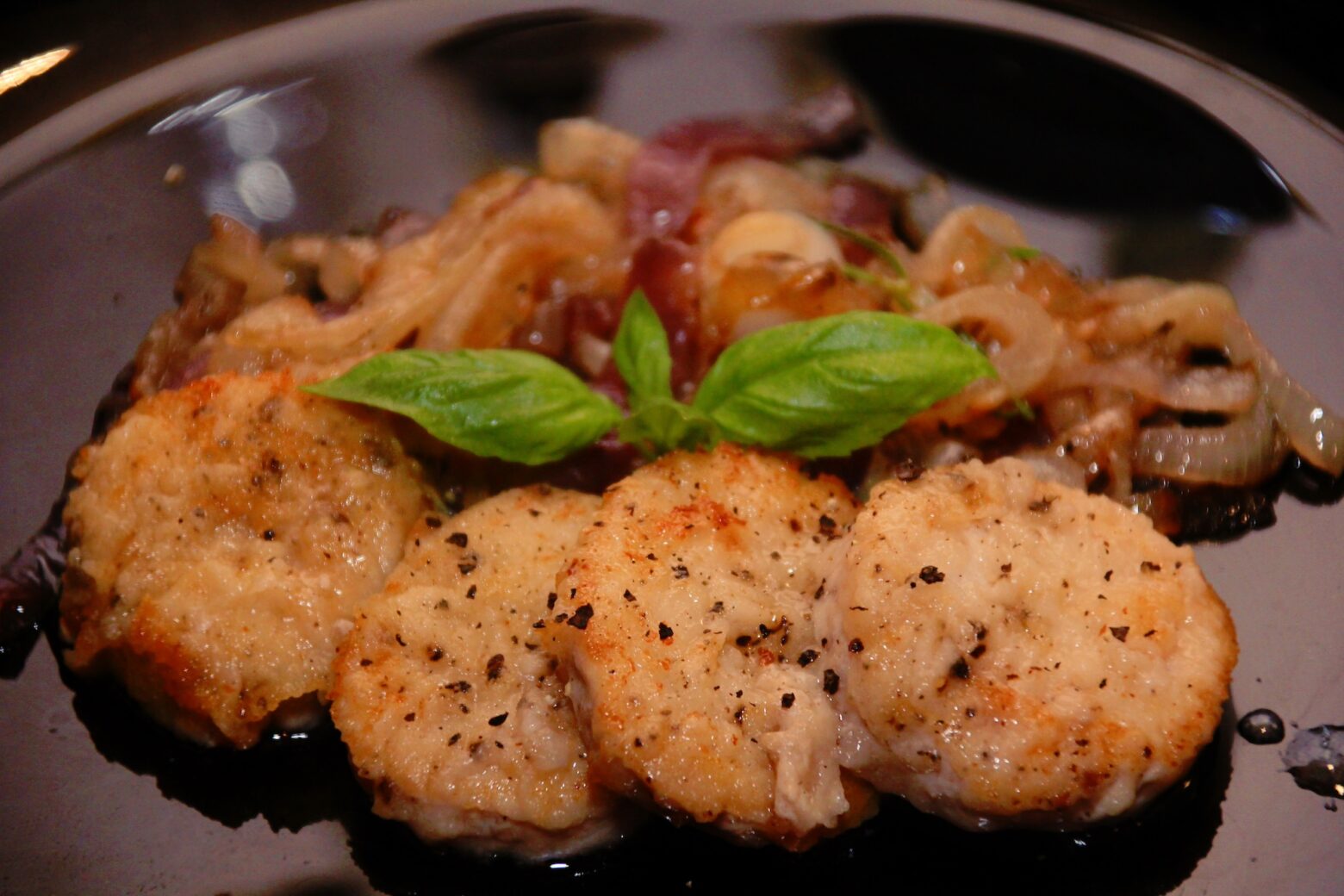
While (real) oysters are an excellent source of zinc, there’s a reason why shellfish are considered unclean in certain cultures. They could absorb toxins like heavy metals and “forever chemicals” from the ocean waters surrounding them. [7,8] Ensure your shellfish are sustainably sourced and responsibly raised when purchasing. Serve them up on the half shell with three classic seafood sauces.
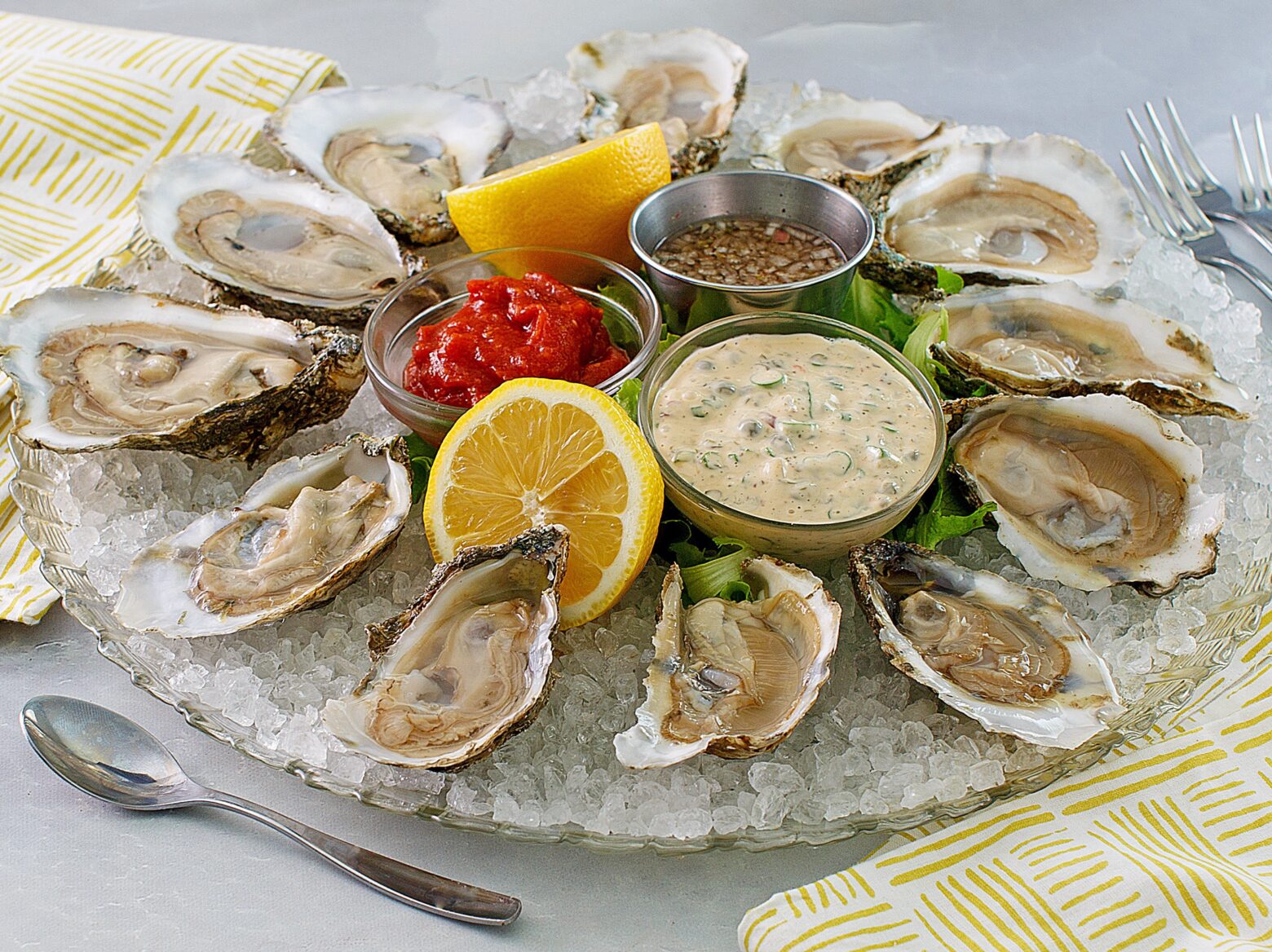
Cacao has antioxidant compounds called flavanols known to support the cardiovascular system and healthy blood flow. [9] In one clinical trial, those eating 30 grams of dark chocolate daily for 15 days had 50% higher nitric oxide levels than those who ate white chocolate. [10] Top off your next romantic dinner with Paleo-friendly dark chocolate raspberry truffles and see where the night takes you.
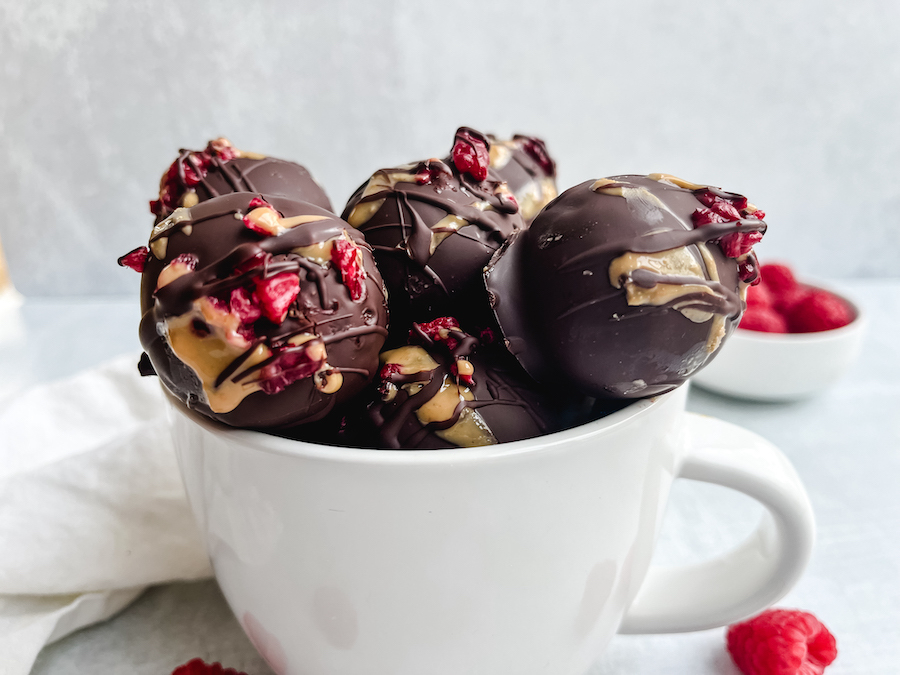
Pumpkin seeds are an excellent plant-based source of zinc. [11] A study showed postmenopausal women with low blood levels of zinc had improved sexual desire, arousal, orgasm, satisfaction, and vaginal moisture after adding a zinc supplement to their diets. It also reduced pain during intercourse. [12]
This chocolate bark recipe combines heart-healthy cacao wafers with zinc-rich pumpkin seeds for a decadent treat.
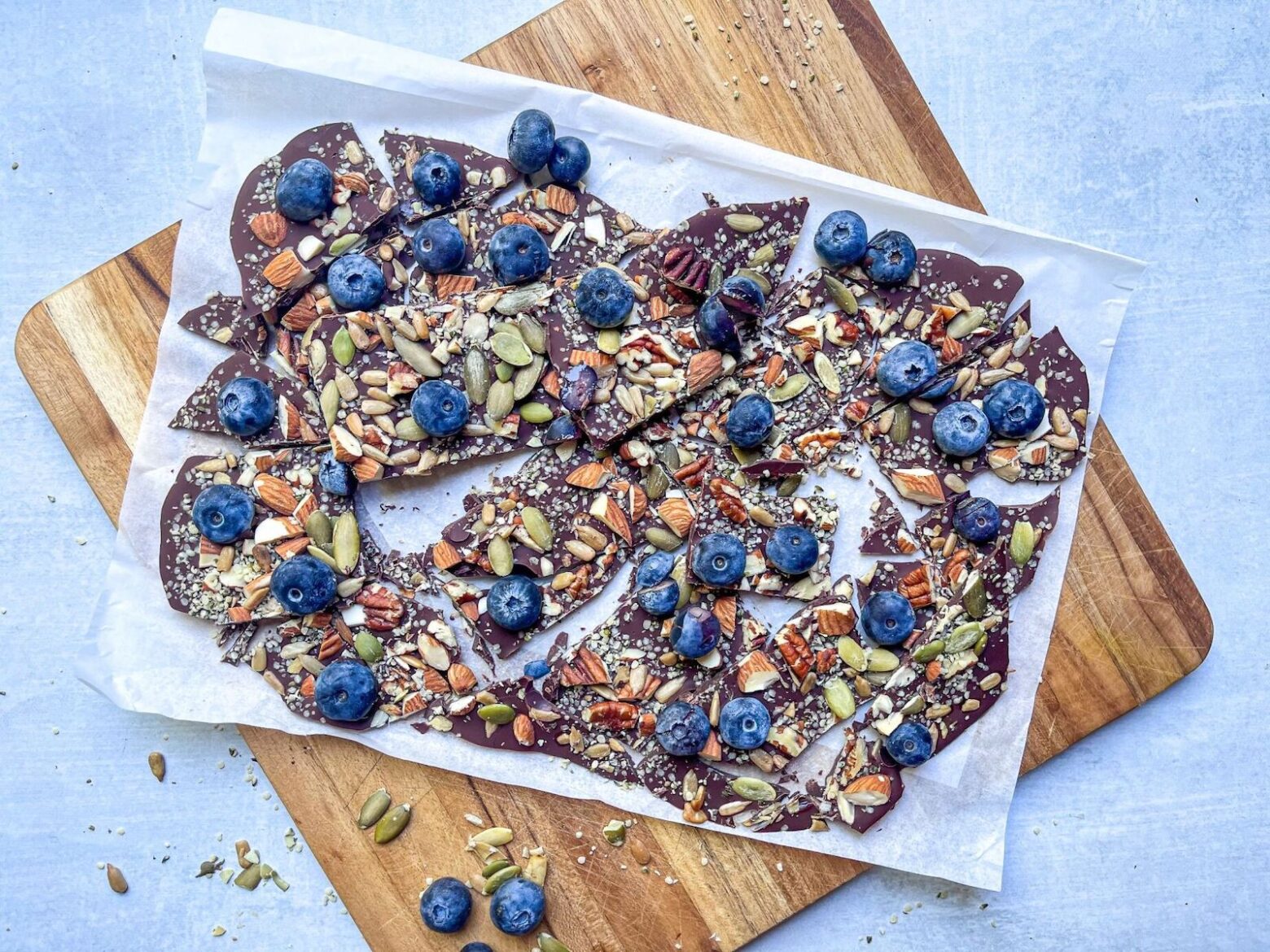
Salmon and other fatty fish are good sources of hormone-supporting omega-3 fatty acids. [13] Omega-3s are also known for improving blood flow, including to the sexual organs. [14] Increase your healthy fats by treating you and your partner to a salmon dinner in a savory lemon dill sauce.
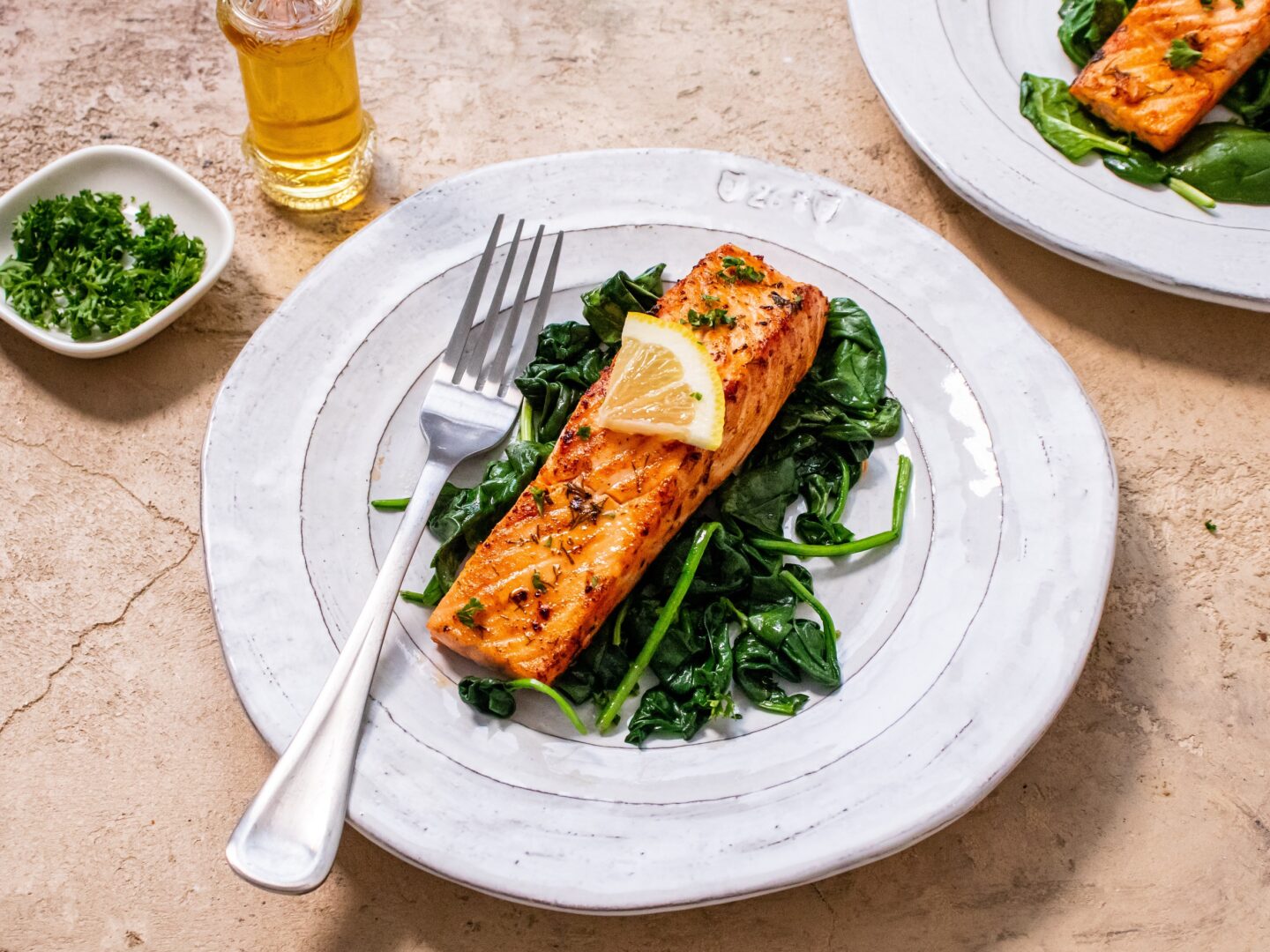
Pomegranate seeds and juice contain polyphenols known to support cardiovascular health and endothelial (blood vessel) function.
They’re also rich in flavones, important for erectile health. A study published in Nature found that pomegranate juice improved ED in men over four weeks. [15] Try the recipe below that combines both salmon and pomegranate to really boost your chances for increased blood flow.
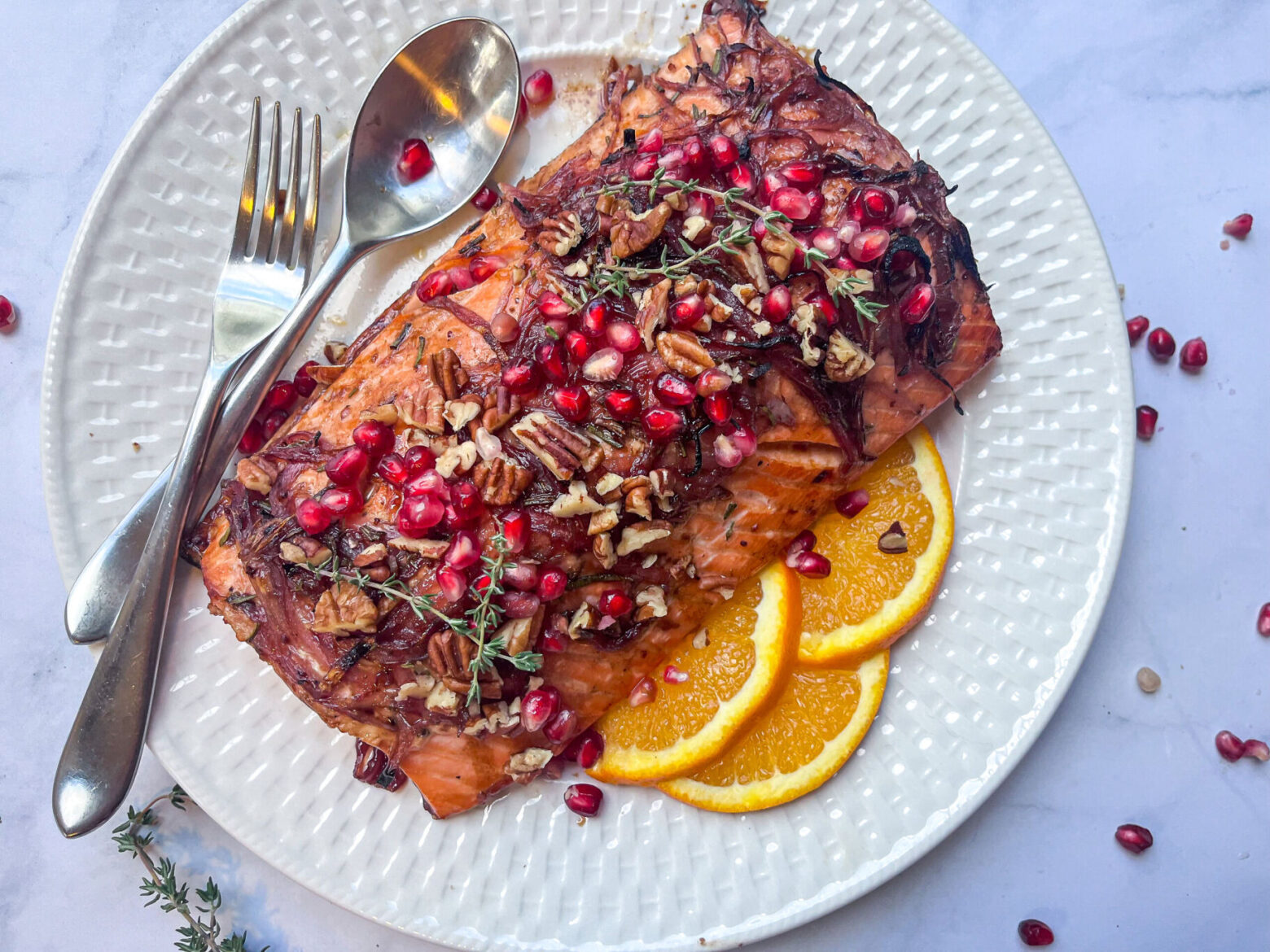
Turkey is a good source of the amino acid L-arginine. L-arginine is the precursor to nitric oxide, which supports endothelial health and blood flow. It’s also used to treat ED. [16] Serve ground turkey stuffed in portobello mushrooms for an elevated dinner entrée.
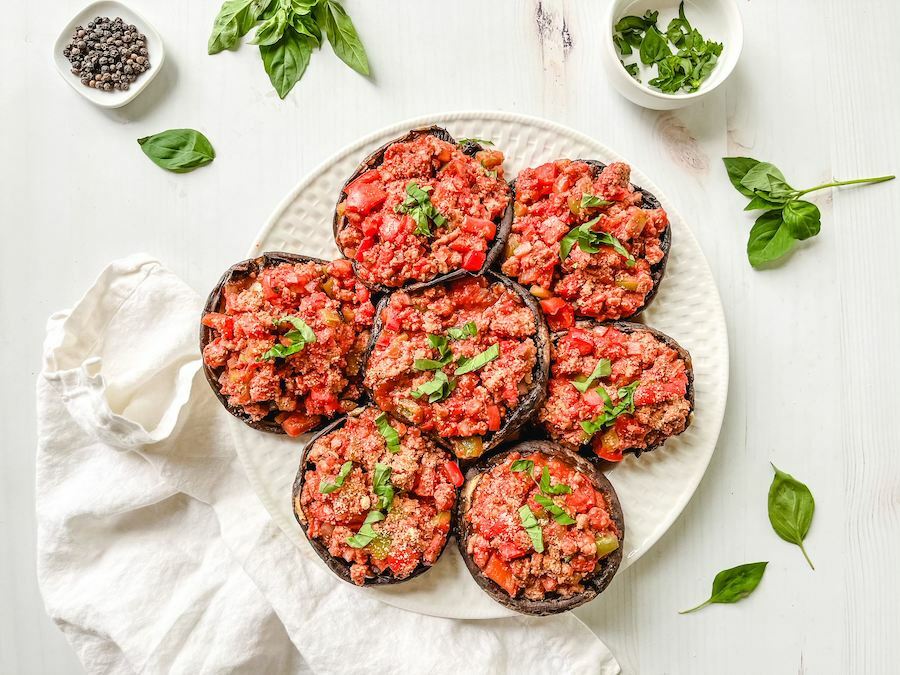
Ginseng tea may increase libido in both men and women. Women who took a ginseng-rich supplement over four weeks had a significant increase in libido by the end of the study. They reported improvements in their sex lives, too. [17]
Steep sliced ginseng in hot water for a homemade tea or look for prepackaged tea at the store.
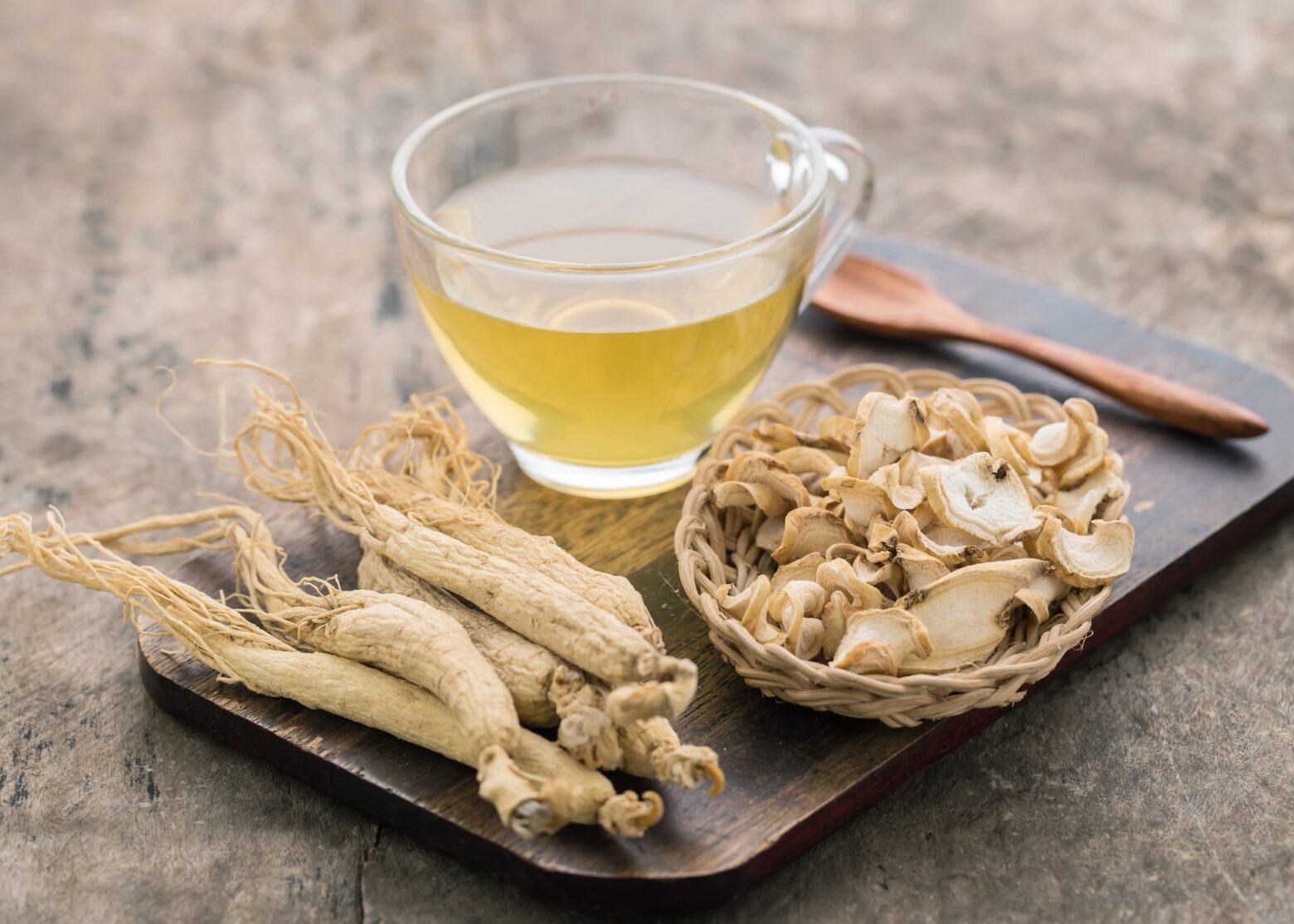
Foods That Could Decrease Libido
A lot of attention is given to aphrodisiacs and nutrients that can increase sex drive, but are there any foods that may impede libido? Unsurprisingly, the answer is yes, and The Paleo Diet already limits all of them.
Sugar
This is the number one food to stay away from if you want to maintain a healthy sex drive. Sugar significantly contributes to insulin resistance and metabolic syndrome. Researchers have found metabolic syndrome is closely linked with lowered libido, decreased sexual activity, sexual dysfunction, and decreased satisfaction in men and women. [18,19]
Fortunately, The Paleo Diet only allows for small amounts of natural sweeteners, and refined sugars are off the table (literally).
Unhealthy Fats
Excessive consumption of saturated and trans fats—found in many processed foods—has shown to have an increased risk of cardiovascular disease and plaque buildup. [20,21] Though these fats are difficult to avoid in their entirety (small amounts exist in animal products), you can limit your intake by avoiding ultra-processed foods and keep the blood flowing in all parts of your body.
Dairy
Another potential libido killer is dairy. In a 2023 scientific review, researchers found the high amounts of trans and saturated fatty acids in full-fat dairy products could contribute to heart disease and lower testosterone. [22] They also noted the potential for estrogens and environmental contaminants found in cow’s milk and other dairy products to affect male reproductive health.
Alcohol
A glass of wine may seem like a romantic gesture for dinner, but you may want to proceed with caution. Many believe that consuming alcohol can contribute to arousal, but too much drinking in one night can lead to desensitization in the genitals for both men and women, risky behavior, and sexual dysfunction such as dryness or impotence—not to mention blurred lines of informed, enthusiastic consent. [23]
Long-term alcohol dependence can also lead to a lower sex drive in men and women, as well as a higher risk of ED and premature ejaculation in men. [24] The Paleo Diet advises up to two glasses of sulfite-free red wine a week, so we suggest limiting your next romantic dinner to one glass to really see sparks fly.
How The Paleo Diet Can Support a Healthy Libido
Research has confirmed those following a Paleo-style diet rich in fatty fish, leafy greens, nuts, and fruit were more likely to experience sexual pleasure. [25] When reviewing specific diets such as the Mediterranean diet and a ketogenic diet—both with similarities to The Paleo Diet and healthier in comparison to a Western diet—studies have found increased testosterone levels and sperm count in men. [22]
We already know that limiting sugar, dairy, alcohol, and unhealthy fats helps protect against conditions that can harm sexual health, like cardiovascular disease and metabolic syndrome. By steering away from these food groups and focusing on Paleo-approved foods to increase libido, you can help your body stay youthful and “active” into old age.
References
- Yannas D, Frizza F, Vignozzi L, Corona G, Maggi M, Rastrelli G. Erectile Dysfunction Is a Hallmark of Cardiovascular Disease: Unavoidable Matter of Fact or Opportunity to Improve Men’s Health? Journal of Clinical Medicine. 2021 May 20;10(10):2221.
- Kotta S, Ansari SH, Ali J. Exploring scientifically proven herbal aphrodisiacs. Pharmacogn Rev. 2013;7(13):1-10. doi:10.4103/0973-7847.112832
- Favier AE. The role of zinc in reproduction. Hormonal mechanisms. Biol Trace Elem Res. 1992;32:363-382. doi:10.1007/BF02784623
- Prasad AS, Mantzoros CS, Beck FW, Hess JW, Brewer GJ. Zinc status and serum testosterone levels of healthy adults. Nutrition. 1996;12(5):344-348. doi:10.1016/s0899-9007(96)80058-x
- My Food Data. Meats Highest in Zinc. Available from https://tools.myfooddata.com/nutrient-ranking-tool/Zinc/Meats/Highest.
- Sood B, Keenaghan M. Coenzyme Q10. [Updated 2022 Jan 19]. In: StatPearls [Internet]. Treasure Island (FL): StatPearls Publishing; 2024 Jan-. Available from: https://www.ncbi.nlm.nih.gov/books/NBK531491/
- Wang L, Wang X, Chen H, Wang Z, Jia X. Oyster arsenic, cadmium, copper, mercury, lead and zinc levels in the northern South China Sea: long-term spatiotemporal distributions, combined effects, and risk assessment to human health. Environ Sci Pollut Res Int. 2022;29(9):12706-12719. doi:10.1007/s11356-021-18150-6
- Nicoletti, A, Florida oysters found to have toxic “forever chemicals.” FIU News – Florida International University, 2022. Available from https://news.fiu.edu/2022/oysters.
- Fraga CG, Litterio MC, Prince PD, Calabró V, Piotrkowski B, Galleano M. Cocoa flavanols: effects on vascular nitric oxide and blood pressure. J Clin Biochem Nutr. 2011;48(1):63-67. doi:10.3164/jcbn.11-010FR
- Sudarma V, Sukmaniah S, Siregar P. Effect of dark chocolate on nitric oxide serum levels and blood pressure in prehypertension subjects. Acta Med Indones. 2011;43(4):224-228.
- FoodData Central. Seeds, pumpkin and squash seed kernels, dried (SR Legacy, 170556). Available from: https://fdc.nal.usda.gov/fdc-app.html#/food-details/170556/nutrients.
- Mazaheri Nia L, Iravani M, Abedi P, Cheraghian B. Effect of Zinc on Testosterone Levels and Sexual Function of Postmenopausal Women: A Randomized Controlled Trial. J Sex Marital Ther. 2021;47(8):804-813. doi:10.1080/0092623X.2021.1957732
- Mumford SL, Chavarro JE, Zhang C, et al. Dietary fat intake and reproductive hormone concentrations and ovulation in regularly menstruating women. Am J Clin Nutr. 2016;103(3):868-877. doi:10.3945/ajcn.115.119321
- Mohebi-Nejad A, Bikdeli B. Omega-3 supplements and cardiovascular diseases. Tanaffos. 2014;13(1):6-14.
- Forest, C., Padma-Nathan, H. & Liker, H. Efficacy and safety of pomegranate juice on improvement of erectile dysfunction in male patients with mild to moderate erectile dysfunction: a randomized, placebo-controlled, double-blind, crossover study. Int J Impot Res 19, 564–567 (2007). https://doi.org/10.1038/sj.ijir.3901570
- Rhim HC, Kim MS, Park YJ, et al. The Potential Role of Arginine Supplements on Erectile Dysfunction: A Systematic Review and Meta-Analysis [published correction appears in J Sex Med. 2020 Mar;17(3):560]. J Sex Med. 2019;16(2):223-234. doi:10.1016/j.jsxm.2018.12.002
- Ito TY, Polan ML, Whipple B, Trant AS. The enhancement of female sexual function with ArginMax, a nutritional supplement, among women differing in menopausal status. J Sex Marital Ther. 2006;32(5):369-378. doi:10.1080/00926230600834901
- Trompeter SE, Bettencourt R, Barrett-Connor E. Metabolic Syndrome and Sexual Function in Postmenopausal Women. Am J Med. 2016;129(12):1270-1277.e1. doi:10.1016/j.amjmed.2016.03.039
- Schulster ML, Liang SE, Najari BB. Metabolic syndrome and sexual dysfunction. Curr Opin Urol. 2017;27(5):435-440. doi:10.1097/MOU.0000000000000426
- Remig V, Franklin B, Margolis S, Kostas G, Nece T, Street JC. Trans Fats in America: A Review of Their Use, Consumption, Health Implications, and Regulation. Journal of the American Dietetic Association. 2010 Apr;110(4):585–92.
- National Heart, Lung And Blood Institute. Atherosclerosis – Causes and Risk Factors | NHLBI, NIH [Internet]. www.nhlbi.nih.gov. 2022. Available from: https://www.nhlbi.nih.gov/health/atherosclerosis/causes
- Pecora G, Sciarra F, Gangitano E, Mary Anna Venneri. How Food Choices Impact on Male Fertility. Current Nutrition Reports. 2023 Oct 20
- Palamar JJ, Acosta P, Ompad DC, Friedman SR. A Qualitative Investigation Comparing Psychosocial and Physical Sexual Experiences Related to Alcohol and Marijuana Use among Adults. Archives of Sexual Behavior. 2016 Jul 20;47(3):757–70.
- Iranpour A, Nakhaee N. A Review of Alcohol-Related Harms: A Recent Update. Addiction & Health [Internet]. 2019 Apr 1;11(2):129–37. Available from: https://www.ncbi.nlm.nih.gov/pmc/articles/PMC6633071/
- Esposito, K., Ciotola, M., Giugliano, F. et al. Mediterranean diet improves sexual function in women with the metabolic syndrome. Int J Impot Res 19, 486–491 (2007). https://doi.org/10.1038/sj.ijir.3901555

